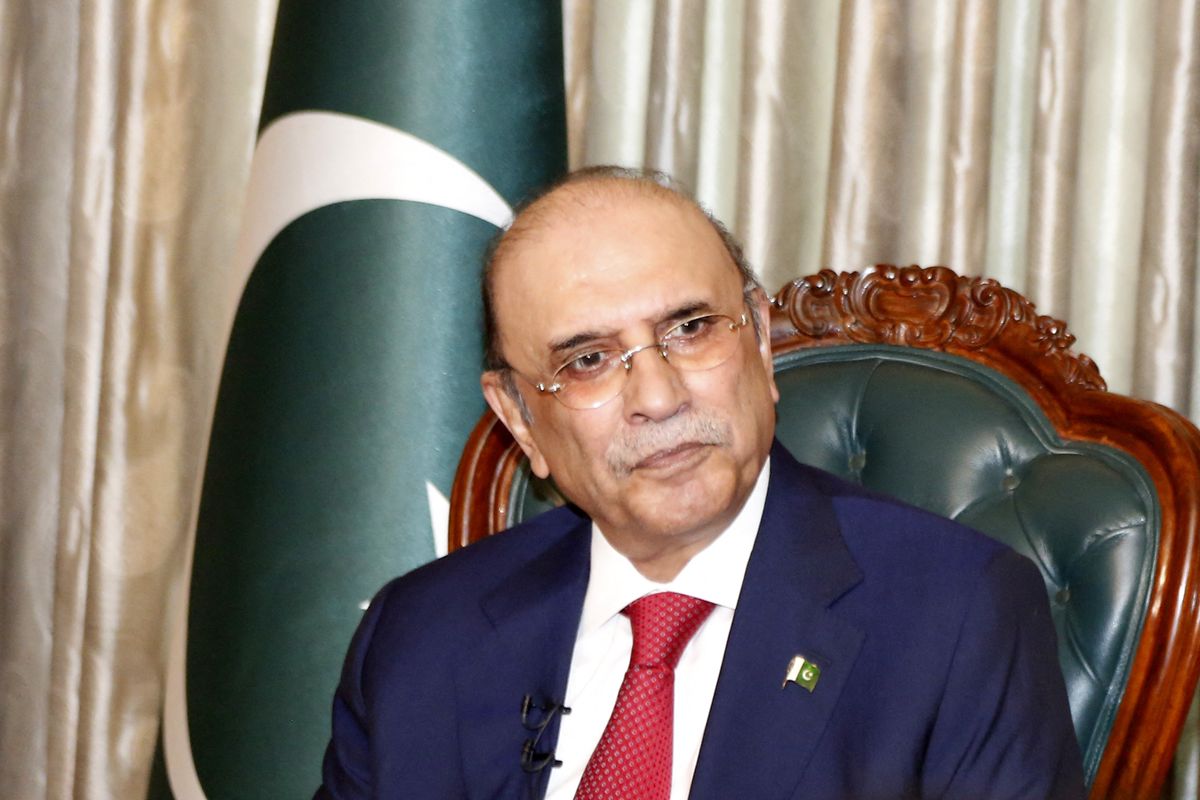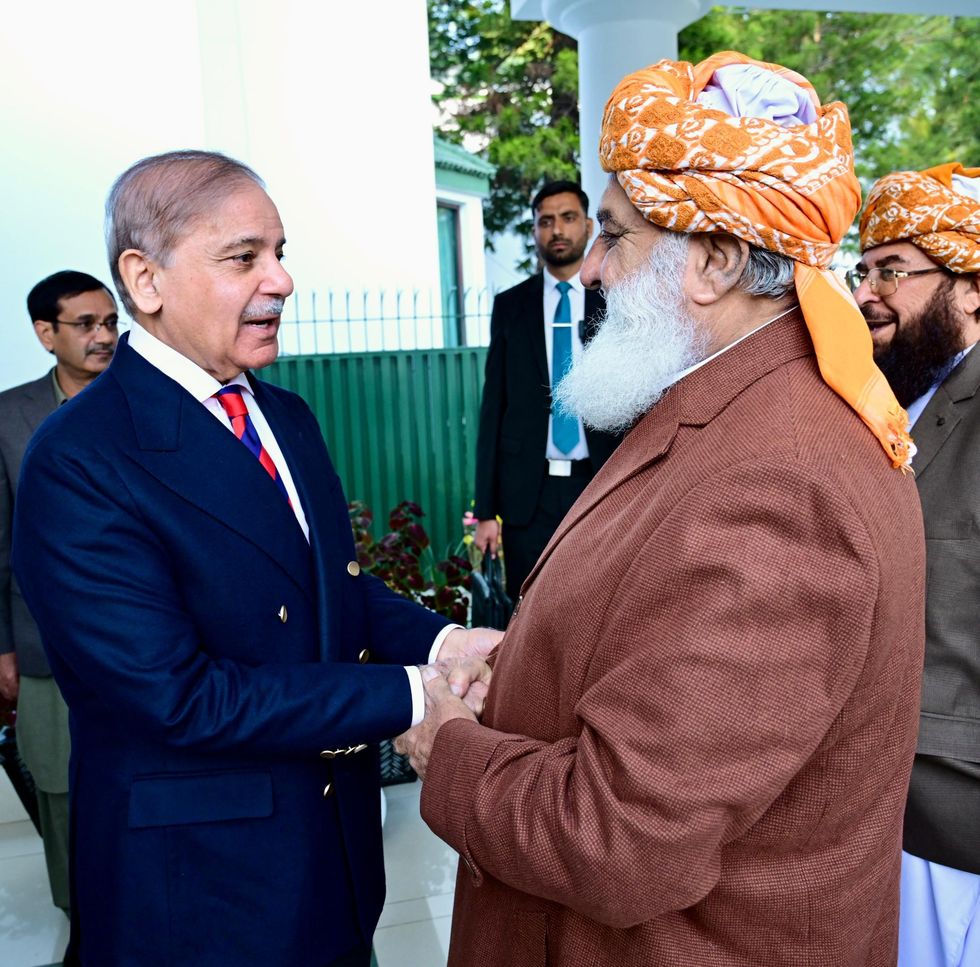Pakistan president signs madrassa registration bill into law, resolving long-standing dispute
JUI-F welcomes development, vows to thwart any ‘conspiracy’ against autonomy of madrassas

Javed Hussain
Correspondent
I have almost 20 years of experience in print, radio, and TV media. I started my career with "Daily Jang" after which I got the opportunity to work in FM 103, Radio Pakistan, News One, Ab Tak News, Dawn News TV, Dunya News, 92 News and regional channels Rohi TV, Apna Channel and Sach TV where I worked and gained experience in different areas of all three mediums. My journey from reporting to news anchor in these organisations was excellent. Now, I am working as a correspondent with Nukta in Islamabad, where I get the opportunity of in-depth journalism and storytelling while I am now covering parliamentary affairs, politics, and technology.

Pakistan's long-standing political dispute over madrassa registration has been resolved as President Asif Ali Zardari signed the Societies Registration (Amendment) Bill 2024 into law, the President’s Office announced.
The legislation, which aims to strengthen oversight and improve regulatory mechanisms for registered societies, was approved by Zardari on Dec. 27 after receiving a summary from the Prime Minister's Office.
The bill’s passage followed extensive consultations between the federal government, Jamiat Ulema-e-Islam (JUI-F), and other key stakeholders.
The president issued the Seminaries Registration (Amendment) Ordinance on Dec. 28.
JUI-F’s reaction
The Jamiat Ulema-e-Islam (JUI-F) welcomed the development. "We prostrate in gratitude to Allah Almighty upon the issuance of the seminaries act notification," a party spokesperson said.
"Allah Almighty has granted us success," Aslam Ghauri, JUI-F spokesperson, remarked, adding, "Our struggle has borne fruit."
He emphasized that JUI-F will continue its role in safeguarding religious seminaries, which he described as "fortresses of Islam and protectors of Pakistan’s ideological geography."
The spokesperson highlighted the importance of unity among scholars to ensure the protection of religious institutions. "We will thwart every conspiracy against seminaries and will not compromise on their autonomy," Ghauri declared.
Why the delay?
Earlier, Zardari had raised objections to the bill. An eight-point document outlining his reservations, obtained by Nukta, revealed concerns that the legislation could invite scrutiny from global financial watchdogs and contradict existing Pakistani laws governing religious schools.
"Lawmakers should keep in mind the international environment as when a Madrasah is registered under a society, which have conflicting interests, [it] would invite international criticism/sanctions for Pakistan," the president's document stated, warning that circumventing existing registration procedures "may invite FATF, GSP Plus and other international institutions to review their opinion about Pakistan".

Why the ordinance was necessary
The need for the ordinance arose due to long-standing concerns over the registration and legal status of religious seminaries, known as madrassas, which play a vital role in religious education in Pakistan.
While 18,600 madrassas are already registered under the Directorate General of Religious Education (DGRE), there was ambiguity about their compliance with the Societies Registration Amendment Act.
Stakeholders argued that a clear, unified legal framework was necessary to address gaps and ensure madrassas operate within the law without unnecessary bureaucratic hurdles.
The bill required all madrassas to register. However, the issuance of the ordinance implies that all madrassas are already considered registered. This shift eliminates the need for redundant registration processes and provides immediate legal cover to the seminaries, streamlining their integration under the new legal framework.
The ordinance was finalized after a series of meetings held on Friday. JUI-F chief Maulana Fazlur Rehman met with Prime Minister Shehbaz Sharif to discuss concerns surrounding the registration of madrassas under the Societies Registration Amendment Act.
Following their discussion, the prime minister directed Law Minister Azam Nazeer Tarar to prepare a comprehensive solution, which led to the decision to issue a presidential ordinance.
Key provisions of ordinance
Under the ordinance, the Directorate General of Religious Education (DGRE) will be formally established as the oversight body for madrassa registration.
The 18,600 madrassas already registered under the DGRE—representing 10 federations—will be considered legally registered and will not require additional documentation under the Societies Registration Amendment Act.
For new institutions, the ordinance provides a streamlined process for registration under both the DGRE and the Societies Registration Act 2024. The ordinance will also ensure legal protection for madrassas, addressing longstanding concerns raised by stakeholders about compliance and governance.
"The goal is to provide legal cover to the DGRE-registered madrassas while making the registration process transparent and efficient," a source familiar with the matter said.







Comments
See what people are discussing